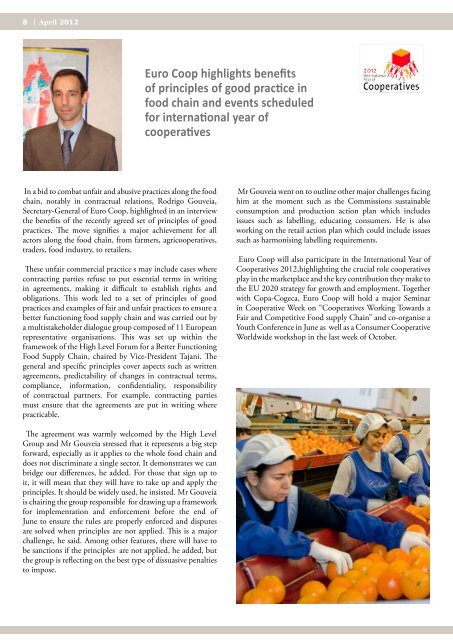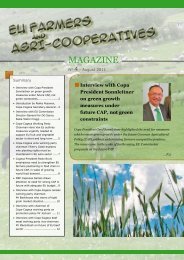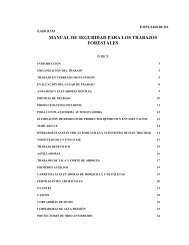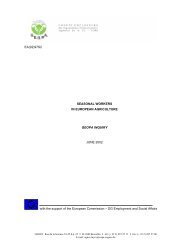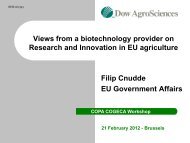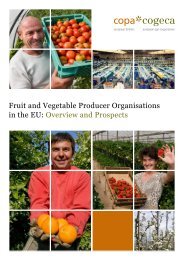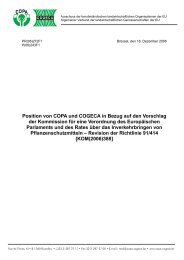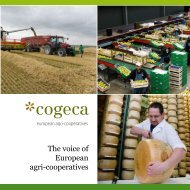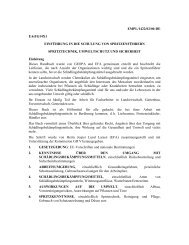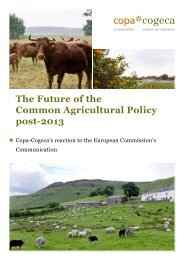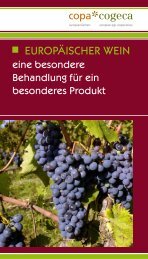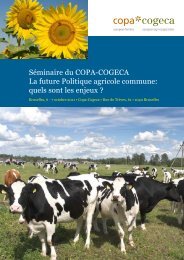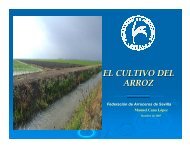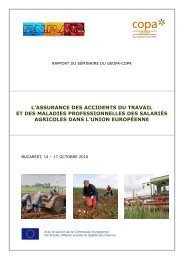MAGAZINE - Copa-Cogeca
MAGAZINE - Copa-Cogeca
MAGAZINE - Copa-Cogeca
You also want an ePaper? Increase the reach of your titles
YUMPU automatically turns print PDFs into web optimized ePapers that Google loves.
8 │ April 2012<br />
Euro Coop highlights benefits<br />
of principles of good practice in<br />
food chain and events scheduled<br />
for international year of<br />
cooperatives<br />
In a bid to combat unfair and abusive practices along the food<br />
chain, notably in contractual relations, Rodrigo Gouveia,<br />
Secretary-General of Euro Coop, highlighted in an interview<br />
the benefits of the recently agreed set of principles of good<br />
practices. The move signifies a major achievement for all<br />
actors along the food chain, from farmers, agricooperatives,<br />
traders, food industry, to retailers.<br />
These unfair commercial practice s may include cases where<br />
contracting parties refuse to put essential terms in writing<br />
in agreements, making it difficult to establish rights and<br />
obligations. This work led to a set of principles of good<br />
practices and examples of fair and unfair practices to ensure a<br />
better functioning food supply chain and was carried out by<br />
a multistakeholder dialogue group composed of 11 European<br />
representative organisations. This was set up within the<br />
framework of the High Level Forum for a Better Functioning<br />
Food Supply Chain, chaired by Vice-President Tajani. The<br />
general and specific principles cover aspects such as written<br />
agreements, predictability of changes in contractual terms,<br />
compliance, information, confidentiality, responsibility<br />
of contractual partners. For example, contracting parties<br />
must ensure that the agreements are put in writing where<br />
practicable.<br />
Mr Gouveia went on to outline other major challenges facing<br />
him at the moment such as the Commissions sustainable<br />
consumption and production action plan which includes<br />
issues such as labelling, educating consumers. He is also<br />
working on the retail action plan which could include issues<br />
such as harmonising labelling requirements.<br />
Euro Coop will also participate in the International Year of<br />
Cooperatives 2012,highlighting the crucial role cooperatives<br />
play in the marketplace and the key contribution they make to<br />
the EU 2020 strategy for growth and employment. Together<br />
with <strong>Copa</strong>-<strong>Cogeca</strong>, Euro Coop will hold a major Seminar<br />
in Cooperative Week on “Cooperatives Working Towards a<br />
Fair and Competitive Food supply Chain” and co-organise a<br />
Youth Conference in June as well as a Consumer Cooperative<br />
Worldwide workshop in the last week of October.<br />
The agreement was warmly welcomed by the High Level<br />
Group and Mr Gouveia stressed that it represents a big step<br />
forward, especially as it applies to the whole food chain and<br />
does not discriminate a single sector. It demonstrates we can<br />
bridge our differences, he added. For those that sign up to<br />
it, it will mean that they will have to take up and apply the<br />
principles. It should be widely used, he insisted. Mr Gouveia<br />
is chairing the group responsible for drawing up a framework<br />
for implementation and enforcement before the end of<br />
June to ensure the rules are properly enforced and disputes<br />
are solved when principles are not applied. This is a major<br />
challenge, he said. Among other features, there will have to<br />
be sanctions if the principles are not applied, he added, but<br />
the group is reflecting on the best type of dissuasive penalties<br />
to impose.


